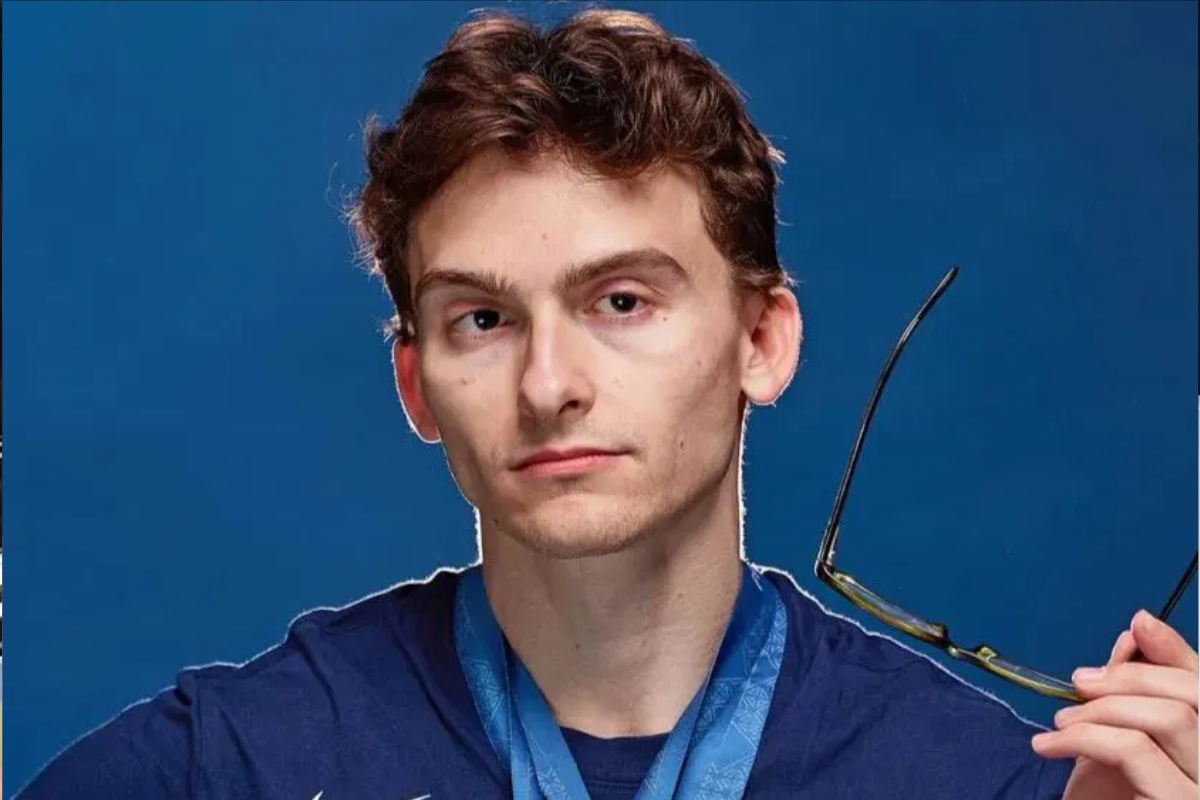
Imago

Imago

Imago

Imago
Stephen Nedoroscik sat quietly at ringside during the men’s team final at Paris 2024, glasses on and eyes closed, taking deep breaths and visualizing every swing. He told himself, “I’m the exclamation point.” Some even joked he was napping. Social media dubbed him “Pommel Horse Guy,” likening him to a sleeper agent slowly activating. Then came the moment when he removed his glasses, like punk rocker Clark Kent shedding his disguise, who then became Superman for all the gymnastics fans in the USA.
Watch What’s Trending Now!
He stepped up to deliver a stunning routine, scoring 14.866. His performance secured the U.S. its first men’s gymnastics team medal since 2008, a bronze. Behind that moment was a skill demanding extreme upper-body and core strength, endurance, agility, and technique honed through thousands of precise reps. But the tougher battle? The mental one, silencing nerves, breathing through pressure, and trusting the routine. In that moment, both body and mind had to be flawless. Stephen Nedoroscik’s were. So what’s his secret?
“Do you have a specific approach to fueling your body or resting that allows you to stay on top of all of these physical and mental challenges?” the Olympic bronze medalist was asked in an interview with Yahoo Life. Talking about what he eats, the Superman of American gymnastics said, “For the most part, I’m very relaxed when it comes to nutrition. … I need to make sure to get enough calories, but I never really concern myself with where those calories come from. It’s kind of well-known that I eat a lot of ice cream, because I struggle to get enough in me throughout the day to not lose weight. So every night I have a 700-calorie bowl of ice cream.” And you will be surprised to know the story behind this.
At National Team Camp, blood tests revealed Stephen’s bone density was slightly low, prompting Team USA doctors to prescribe a higher calorie intake. Their initial healthy snacks didn’t cut it, so Stephen turned to what he truly enjoys: ice cream. Now, each night he enjoys a bowl to meet his caloric goals and keep his body strong. Getting to the flip side of the coin, he also confessed, “Sleep is another thing that I struggle with. Like I said, I keep spinning, I keep moving, and that is a problem for me when I’m trying to settle down for bed — especially when I wake up at 7 a.m. every morning for my workout.” Pommel horse routines involve continuous, flowing movements like circles, flairs, spindles, travels, and Russian loops, executed with perfect rhythm. Maybe that’s what causes the spinning in the head.

He also said, “After the tour, I had to do a whole readjustment to what my schedule looked like so that I could sleep on time. I would say right now I’m averaging around seven hours of sleep a night, which isn’t where I want to be. But I’m slowly chipping away at getting to bed closer and closer to the time that I’m projected to.” Stephen’s nightly ice cream ritual may be affecting his sleep, as high sugar intake before bed is linked to restlessness and poor sleep quality. While he hasn’t shared exactly when he eats it, large sugary snacks at night aren’t ideal. The American Heart Association advises keeping sugar intake to 25–36 grams daily for better health. But if he loves it, he loves it; he has faced enough hardships to earn it.
From Vision Conditions to ADHD, life has been hard for Stephen Nedoroscik
Stephen Nedoroscik has navigated life with two rare eye conditions: strabismus, where his eyes misalign and cause double vision, and coloboma, a congenital defect that leaves parts of his iris missing and makes him extremely light-sensitive. He avoids driving, rarely opens his eyes outdoors, and carefully manages light exposure. Yet when he is on the pommel horse, he does not need his eyes. H relies entirely on feeling and tactile feedback. His hands guide him.
Beyond physical limitations, Stephen also handles ADHD, which fuels his hyper-focus and energy, and asthma, which he manages daily with an inhaler, even amid elite-level training and Dancing with the Stars performances. He’s been called a “one‑event specialist” by critics, yet he used that doubt as fire, channeling breathing techniques to manage panic and self‑doubt before shining on the Olympic stage and proving them all wrong. What are your thoughts on him?

